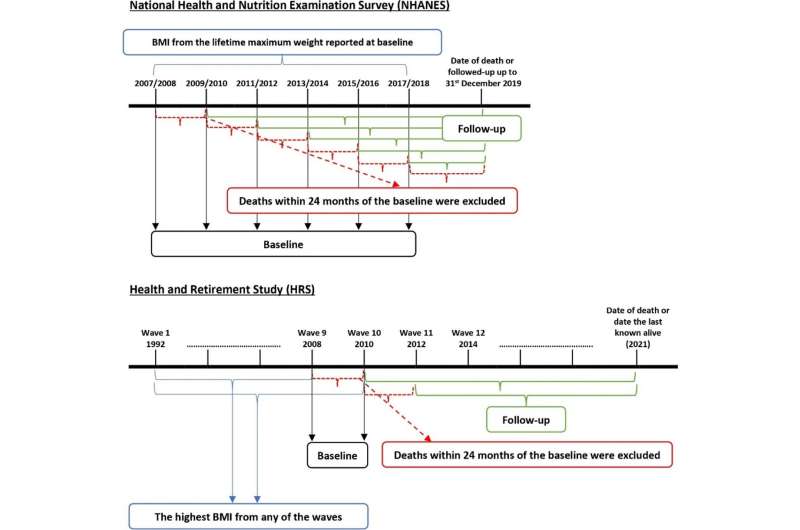
Researchers from the University of Liverpool, in collaboration with researchers in the UK, Ireland, and North America, have led a study to better understand the potential long-term consequences of previous obesity. In a recently published paper, the University of Liverpool team found that obesity may be psychologically scarring and is also linked to increased risk of mortality independently of current weight.
The global prevalence of obesity has nearly tripled in the last four decades (1975–2016) and is now a major public health crisis. Using a sample size of more than 40,000 participants from two nationally representative studies, the new research offers new insights into the potential long-term impacts of obesity on mental health and life expectancy.
Dr. I Gusti Ngurah Edi Putra and Professor Eric Robinson from the University of Liverpool worked with Dr. Michael Daly, Maynooth University, Professor Angelina Sutin, Florida State University, and Professor Andrew Steptoe, University College London, to develop the paper published in BMC Medicine. It suggests that previous periods of living with obesity may be associated with long-term ‘scarring’ consequences on mental health, and there may be a psychological legacy of obesity even among people who previously had obesity but do not anymore.
Dr. I Gusti Ngurah Edi Putra from the Institute of Population Health said, “This paper offers valuable insight into the potential long-term psychological impact on those who have experienced obesity during their lives.”
“Given the increased number of people who are developing obesity at early ages and people actively attempting to lose weight, a history of obesity is now more common, and the findings of the present study suggest this history of obesity may be associated with the development and/or persistence of depressive symptoms and impaired well-being. Our findings suggest that the psychological burden of obesity may be larger and have longer-term consequences than previously assumed.”
More information:
I Gusti Ngurah Edi Putra et al, The psychological legacy of past obesity and early mortality: evidence from two longitudinal studies, BMC Medicine (2023). DOI: 10.1186/s12916-023-03148-3
University of Liverpool
Citation:
Understanding the psychological legacy of past obesity (2024, January 15)
retrieved 15 January 2024
from https://medicalxpress.com/news/2024-01-psychological-legacy-obesity.html
This document is subject to copyright. Apart from any fair dealing for the purpose of private study or research, no
part may be reproduced without the written permission. The content is provided for information purposes only.
_______
Source : medicalxpress.com